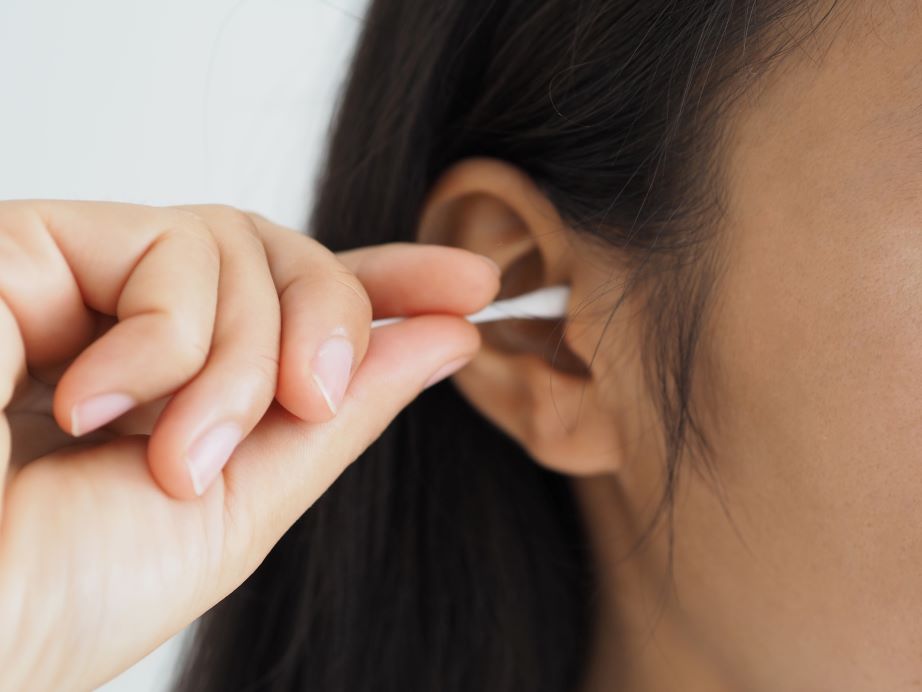Tinnitus is the bane of many individuals’ lives, however there are many advanced ways we can help you manage and alleviate your symptoms, which in turn improves your quality of life day to day.
What is tinnitus?
The NHS defines tinnitus as “hearing noises that do not come from an outside source”, and those who experience tinnitus can hear sounds such as ringing, humming and buzzing. It’s a common condition that is more likely to affect those aged 40 and up, but can be experienced by people of any age.
Tinnitus doesn’t have a cure but can be managed with the use of hearing aids, through therapy, health management and by making lifestyle changes. The intensity of tinnitus can vary from person to person; someone may experience loud, persistent ringing whereas another person may hear infrequent humming that can be easy to ignore.
Types of tinnitus
Tinnitus is the common, umbrella term for 7 different types of tinnitus. These types are:
- Subjective tinnitus: the most common type of tinnitus where only the person with tinnitus can hear the sound. Often caused by exposure to loud sounds, ear infections and age-related hearing loss.
- Objective tinnitus: a rare type of tinnitus where the examiner can also hear the tinnitus using a stethoscope over the patient’s external auditory canal. This is often related to vascular problems, muscle contractions, or middle ear bone conditions.
- Somatic tinnitus: this type of tinnitus is influenced by body movement or physical changes such as a change in posture or muscle contractions. This is linked to musculoskeletal disorders, neck or jaw problems, and certain head movements.
- Neurological tinnitus: this form is associated with neurological conditions such as multiple sclerosis.
- Pulsatile tinnitus: this type of tinnitus has a rhythmic pulse, often in time with the patient’s heartbeat. This form of tinnitus is linked to blood pressure problems and cardiovascular abnormalities.
- Tonal tinnitus: this tinnitus type is characterised by only hearing a continuous sound with a specific pitch and is associated with hearing loss or auditory damage.
- Non-tonal tinnitus: this form of tinnitus involves more noise-like sounds such as buzzing, humming and whooshing without a specific pitch and is associated with noise exposure and ear infections.
Knowing which type of tinnitus you are experiencing is key to understanding the best way to manage your symptoms.

Common causes of tinnitus
There is no singular cause of tinnitus. Tinnitus can be the result of health conditions, ageing, lifestyle and medications.
Health conditions that can lead to tinnitus
The health conditions that can cause tinnitus include:
- Ear infections or blockages: ear infections and use of foreign objects within the ear can disrupt the normal functions of the ear and lead to tinnitus.
- Earwax build up: a build up of earwax can cause a blockage in the ear canal which can create a change in our hearing ability and lead to tinnitus.
- Meniere’s disease: this is a disease of the inner ear that can result in episodes of vertigo, hearing loss and tinnitus.
- Circulatory system disorders: disorders such as high blood pressure and atherosclerosis can cause tinnitus.
- Temporomandibular Joint (TMJ) disorders: problems with the connecting joints within the jaw and skull can cause tinnitus.
Lifestyle choices that can lead to tinnitus
Sometimes the way we live and work can impact our chances of developing tinnitus. This includes:
- Excessive noise exposure: listening to loud music, wearing headphones for long periods of time and noise exposure at work can lead to tinnitus.
- Consuming caffeine: the odd caffeinated drink won’t cause long-term harm, but the consumption of excessive levels of caffeine can be a factor that leads to tinnitus.
- Alcohol consumption: the same goes with alcohol, where too much can be a factor that leads to tinnitus.
- Stress: high stress levels can cause periods of tinnitus.
Other factors that can lead to tinnitus
Factors such as ageing, medications and hearing loss can also cause tinnitus. Sometimes it’s unavoidable, but it’s not always one single factor that can lead to ringing in the ears, so it is possible to avoid tinnitus and prevent it from worsening.

Impact of tinnitus on daily life
Living with tinnitus can range from manageable to debilitating, and can impact all areas of daily life, from causing disruptions to sleep, mental health challenges and difficulties in communicating.
Those who live with moderate to severe tinnitus can have trouble falling and staying asleep, which can result in frequent wakes in the night and poor quality of sleep, fatigue and poor concentration. When dealing with poor sleep and tinnitus, individuals will often find themselves dealing with higher levels of emotional stress and poor mental health. This can present as increased feelings of frustration and anxiety, feelings of isolation and an increased risk of developing depression.
Severe tinnitus, or tinnitus paired with poorly managed hearing loss, can cause great difficulty in communicating and socialising. This can impact a person’s self-esteem, lead to feelings of loneliness and result in individuals avoiding social situations.
Some can even find themselves dealing with physical discomfort, such as migraines and headaches due to the constant noise. The stress can also lead to tension within the jaw and neck which can result in pain and discomfort.
Many of the ways tinnitus can impact daily life will create a vicious cycle, and some people find it difficult to know how and where to break the cycle and take control of their symptoms.
How hearing aids help tinnitus
Hearing aids can significantly alleviate tinnitus by using sound amplification and masking. By amplifying external sounds, hearing aids make external noises more prominent, which can effectively drown out the internal sounds of tinnitus. This helps to shift the focus from the persistent ringing or buzzing to the actual sounds around them, reducing the perceived loudness of tinnitus.
Many modern hearing aids also come equipped with built-in sound generators that produce soothing sounds, such as white noise or nature sounds, which also mask tinnitus and provide relief.
Hearing aids also support the neuromodulation by providing consistent auditory input which can help retrain the brain to focus less on the tinnitus sounds. Over time, this can lead to a reduction in the neural hyperactivity associated with tinnitus.
Improved hearing also enhances communication abilities, making conversations easier and reducing the stress and frustration that often accompany hearing loss and tinnitus. By improving overall hearing and providing targeted sound therapy, hearing aids not only help mask tinnitus but also contribute to a better quality of life for individuals suffering from this condition.

Benefits of using hearing aids for tinnitus
Using hearing aids for tinnitus offers a range of benefits from improved hearing and sound clarity and masking symptoms of tinnitus, but it can also help improve disrupted sleep and challenges in socialising.
As well as improving hearing, hearing aids can substantially reduce the emotional and psychological impact of tinnitus. Many individuals with tinnitus experience increased levels of stress, anxiety, and even depression due to the constant noise.
Hearing aids can alleviate these feelings by providing relief from the persistent sounds, which in turn works on reducing stress and improving sleep quality. Improved communication abilities lead to increased participation in daily activities and conversations, which can distract from tinnitus and contribute to a more positive outlook on daily life.
Choosing the right hearing aid for tinnitus
It’s important to note that hearing aids do not cure tinnitus; they are used in the management of the symptoms. There is currently no known cure for age-related or noise exposure damage induced tinnitus. However, most hearing aids can be used in the management of tinnitus, whether that’s a behind-the-ear (BTE) hearing aid, in-the-ear (ITE) or in-the-canal (ITC) hearing aid or a completely-in-the-canal (CIC) hearing aid.
What is more important is looking for specific features, however a hearing aid lacking these features will still be able to help alleviate tinnitus symptoms, meaning that no matter your budget there is an ideal solution for you.
Hearing aid features to opt for
If your budget allows you to opt for these features, we recommend choosing a hearing aid that has most, if not all of them. These features have been highlighted for their convenience and life-improving benefits.
- Tinnitus masking features: hearing aids that have built-in sound bathing are great for those with moderate to severe tinnitus as they will play a continuous sound to help calm the brain and replace the uncomfortable noise associated with tinnitus.
- Bluetooth connectivity: using a hearing aid with Bluetooth can have many benefits, from being able to adjust your hearing aid settings from your phone yourself to being able to connect your hearing aid to your listening device or phone for a better communication and listening experience.
- Rechargeable batteries: friendly to our planet and your wallet, and more accessible to those with declining fine motor skills, opting for a rechargeable hearing aid can be best.
However, no matter your budget or hearing aid preferences, we’ll be sure to talk you through your options to help you find the perfect hearing aid to help manage your hearing loss and tinnitus.
Hearing aid and tinnitus FAQs
Do hearing aids really help tinnitus?
Yes, hearing aids really can help improve and manage tinnitus. Although it isn’t a cure, it can help improve hearing quality and improve day-to-day life.
How long does it take for hearing aids to help with tinnitus?
The typical adjustment period can vary from person to person and depends on how severe your sensitivity to tinnitus is, the type of tinnitus and the severity of tinnitus. When you come for a consultation, we will discuss with you the adjustment period you can expect, however the more frequently you wear your hearing aids the quicker your brain and auditory system will adapt.
What are alternative treatments for tinnitus besides hearing aids?
There are alternative methods to help manage tinnitus, such as CBT and other therapies to help manage stress and anxiety, improving your diet and being mindful of how you move your body and avoiding triggers such as caffeine, excessive noise and alcohol.
How do I know if I need a hearing aid for my tinnitus?
If you’re unsure on how to treat tinnitus, book an appointment with our expert audiologists and we’ll carry out an in-depth 90-minute tinnitus assessment to help you determine the type of tinnitus you have and how best to manage it.
